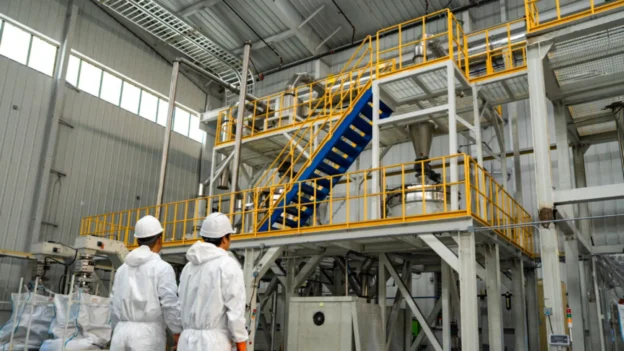Princeton NuEnergy’s (PNE) flagship recycling plant in Chester, South Carolina, goes into operation in the USA. This facility marks a milestone as the first in the country to produce advanced black mass and cathode active NCM and LFP materials on a commercial scale.
Recycling plant with less environmental impact
The Advanced Black Mass (ABM™) recycling production plant uses the LPAS™ low-temperature plasma-assisted separation system, a technology unique to PNE that recovers critical materials without the aggressive processes of conventional pyrometallurgy.
This approach has proven to be more sustainable, with a 69% smaller environmental footprint and a 38% reduction in operating costs.
With a current capacity of 5,000 tons per year, the Chester plant is designed to scale up to 15,000 tons by 2026 and reach 50,000 tons as demand grows. This local production capacity provides energy security by reducing dependence on imports and consolidating an entirely domestic battery supply chain.
Traceability, quality and regulatory compliance
PNE has managed to operate this facility under strict operating procedures that guarantee the traceability and quality of the recycled material. The recovery rate already exceeds 97%, which is above current industry standards.
The company continues to expand its presence with a pilot plant in Texas and a materials validation center in Princeton, New Jersey. The latter is the largest of its kind in the northeastern part of the country and certifies the quality of recycled product for battery manufacturers.
With more than $55 million in funding from partners such as Honda, Samsung and the U.S. Department of Energy, Princeton NuEnergy is consolidating its position as a key player in the energy transition. energy transition and the efficient reuse of strategic materials.
Source and photo: Princeton NuEnergy

